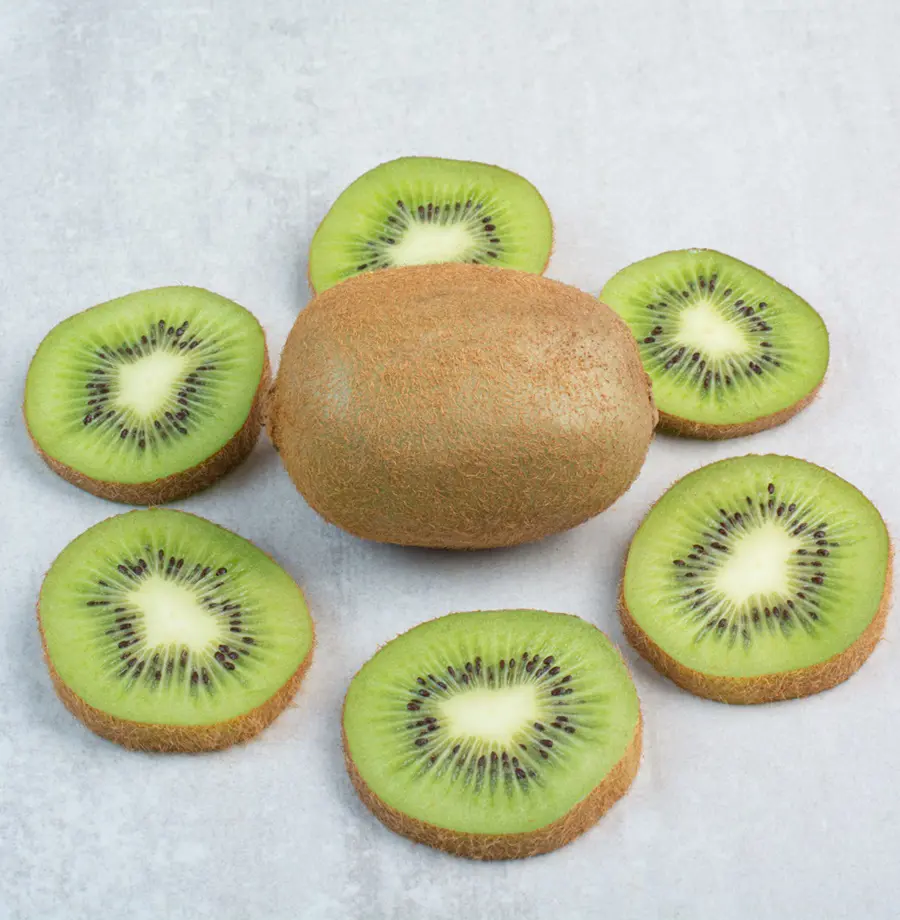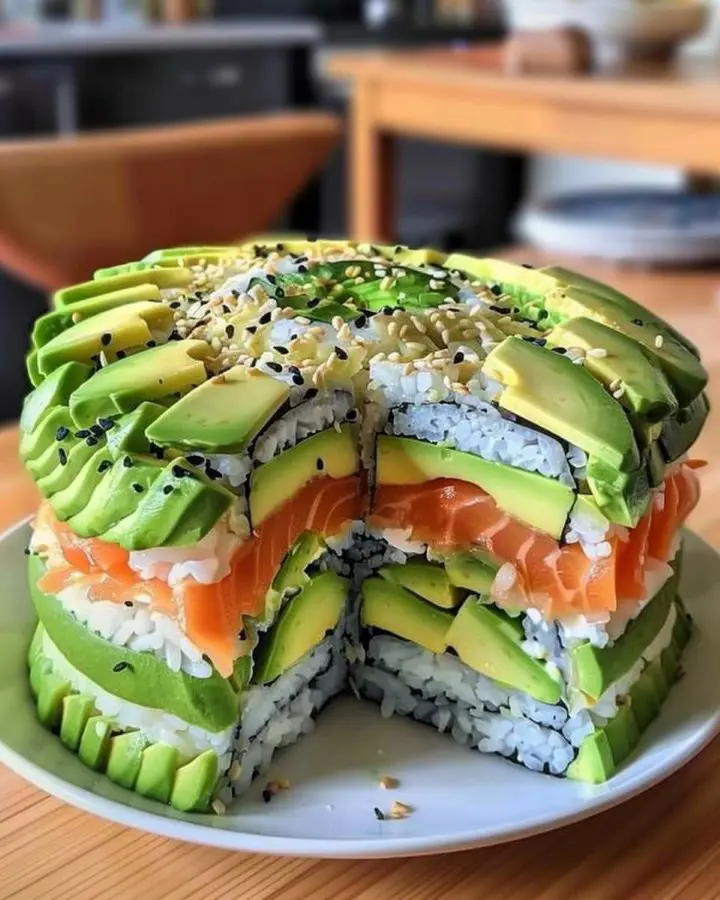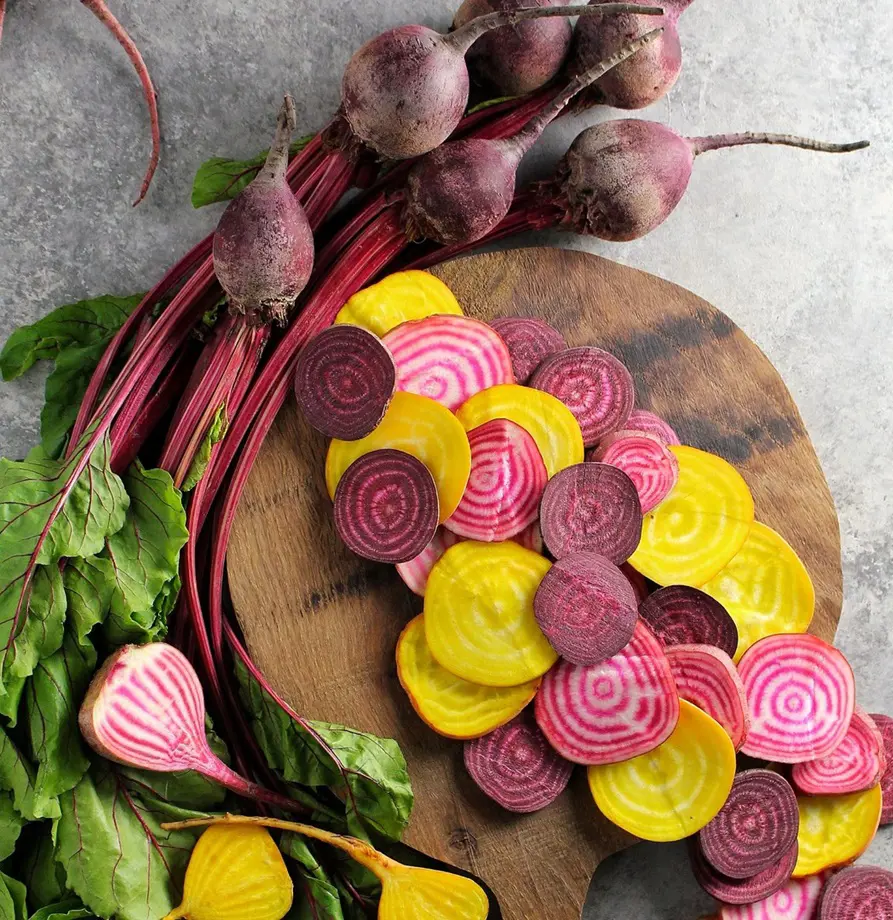How To Eat Coconut Oil? Best Ways
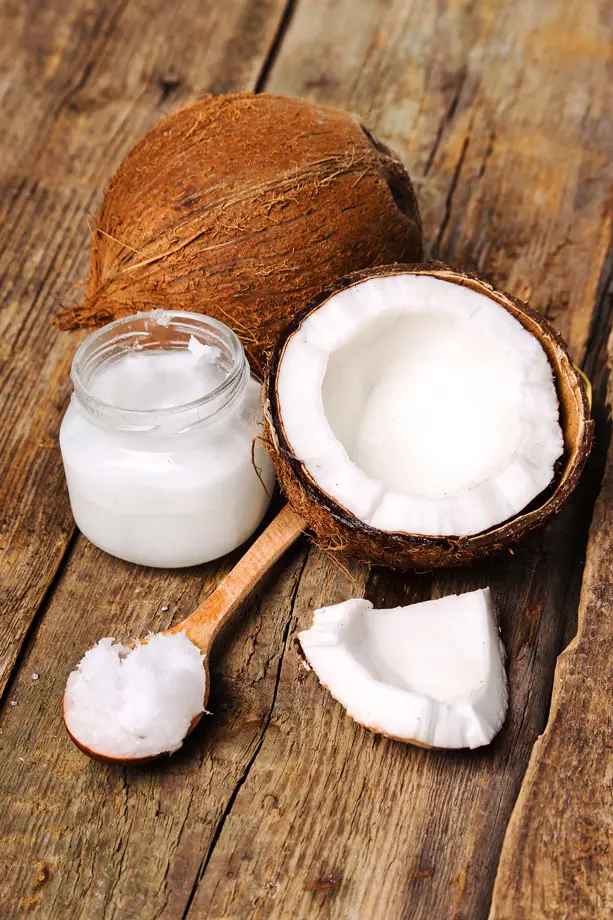
This post may contain affiliate links. If you make a purchase through links on our site, we may earn a commission.
Coconut oil is a healthy fat, and, is not new to the culinary world. It comes with a range of health benefits, and to achieve them you can use the oil in many ways. One such way to use it is by incorporating it into cooking.
Here, we have brought up some of the most popular ways coconut oil has been used in cooking. These methods will enhance the taste of your dish as well as make sure you get all the benefits the oil has to offer.
In Drinks

The recipe may sound simple but adding coconut oil to your coffee or drink is a powerful way to increase healthy fats in your diet. To make one of these drinks, all you need is:
- Coconut oil and frother
- Tea/ Coffee
Into your regular tea/coffee, add some coconut oil, always start with a little. The best amount would be 1 teaspoon which can be later increased to 1 tablespoon. Blend the mixture enough so that it will have a creamy consistency. As coconut is a source of medium-chain triglycerides (MCTs), a fat that can be quickly metabolized in the body, initiating your days with these drinks can be an efficient way to be energized throughout the day.
In Smoothies
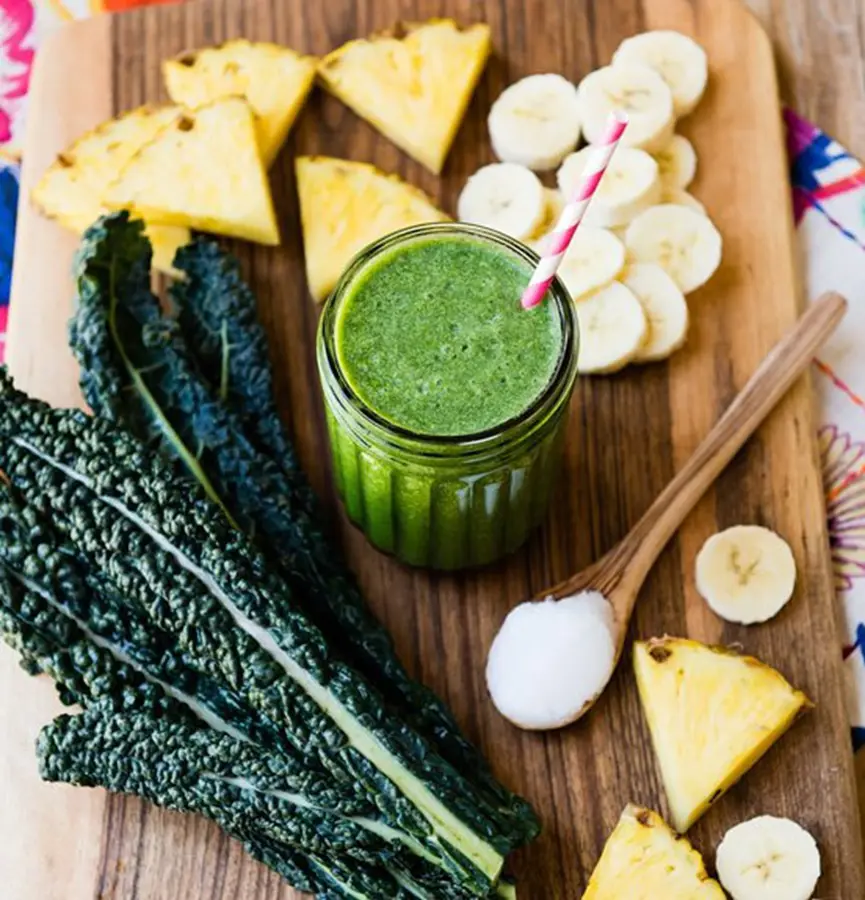
Coconut oil blended smoothies can equally keep you satisfied into the afternoon. The main plus point about this drink is coconut oil blends seamlessly into smoothies. To give your smoothie a nice richness, the ingredients you should be gathering include:
- Your favorite fruits
- Coconut oil and any thickener
The making process just requires you to blend in your all-time favorites with coconut oil. This kind of drink is perfect for those who are on a keto or low-carb diet. In such diets, hunger may be a common issue, so, whenever you feel like having a power boost meal, drink these smoothies to stop yourself from eating something that holds you back from losing weight.
In Cooking
Coconut oil can replace cooking oil in terms of its flavor. The high smoking point is another feature that allows for the use of this oil in cooking processes like frying.
Sautéing and Stir-Frying
From frying eggs to sautéing or stir-frying your favorite vegetables, coconut oil can be the key to attaining golden-brown crispness that’s hard to achieve with other oils. With the use of this oil, you can have a satisfying result, the exterior being crisp while keeping the interior moist.
Deep Frying
The refined coconut oil is ideal for cooking at higher temperatures associated with deep frying. Coconut oil fried chicken, potato chips, shrimp, and fried fish in coconut oil are some mouth-watering dishes you can give a try.
In Soups and Stews
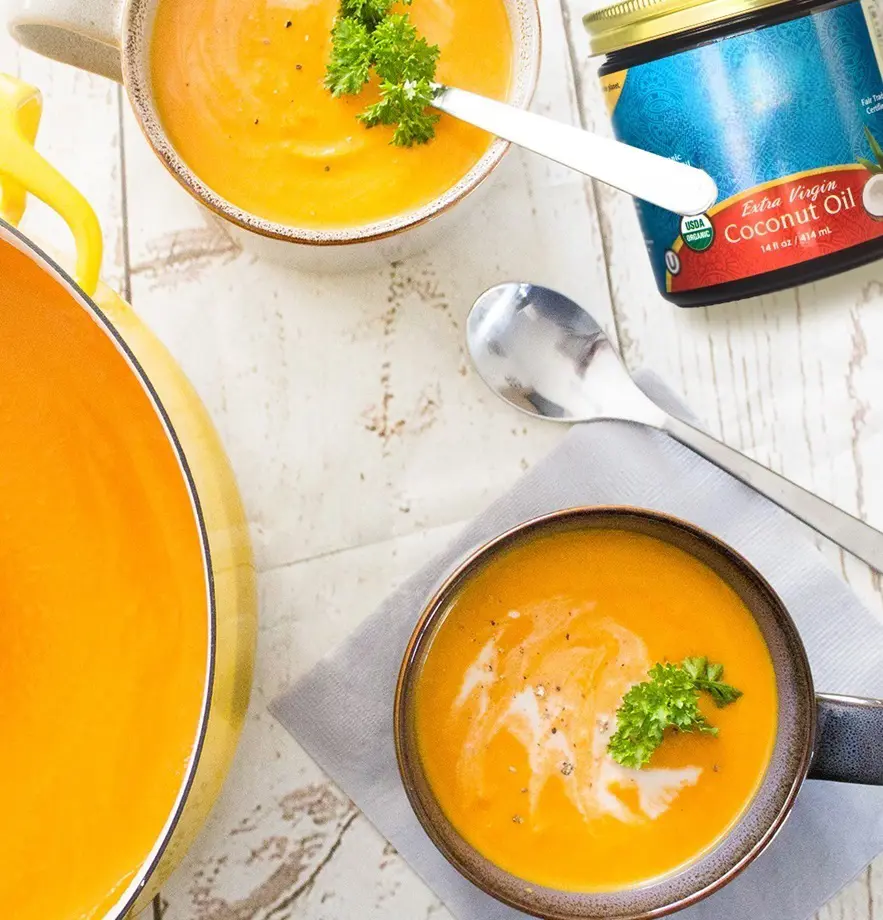
From Thai coconut soup to other creamy soups like butternut squash bisque, coconut oil can work as a perfect replacement for other oils. The best part of using coconut oil lies in the silky texture it brings to these soups.
Coconut oil is already a part of many stews, some of them including those belonging to Indian and South Asian Cuisine. In stews, coconut oil can add to the richness of spices like ginger, garlic and chili. Overall, the slight coconut flavor that brings to stews and soups can be a unique twist you might get fond of.
Grilling and Roasting
Coconut oil is also suitable for grilling meats, fish, or even vegetables. A slight hint of coconut oil in the ingredients is enough to provide them with a subtle coconut flavor. The final result comes out as a beautiful dish you can't resist.
Using coconut oil in roasting is also magical, the taste here is something you won't be able to get over. Whatever you are roasting, for instance, using coconut oil in roasting root vegetables like sweet potatoes or carrots, can provide them a golden brown color and also a hint of oil's natural sweetness.
In Baking
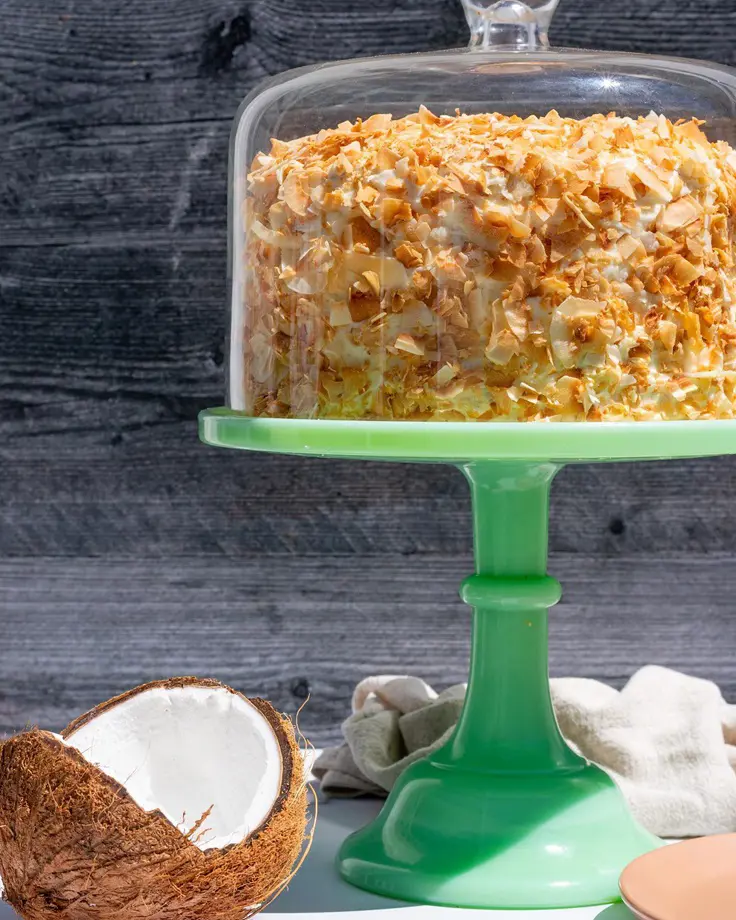
The fats coconut oil possesses can make baked items healthier. The recipe however remains the same, just replace the butter, vegetable oil or margarine with coconut oil. For anyone on dairy-free, vegan or paleo diets, the substitute can have a great effect.
Chocolate, banana, citrus, spices or tropical fruits, whatever the ingredients being used in the recipe, coconut oil can pair wonderfully with all of them. The oil keeps the texture of the batter light and fluffy and once out of the oven, you can get moist and tender baked goods. Coconut oil works really well when used to prepare cakes, muffins and brownies.
Treats and Snacks
You can prepare filling treats and snacks using coconut oil. Remove butter and margarine from your pantry and let these healthy fats do you the favor of providing nutritious treats that do only good to your diet plan.
Salads
Sometimes, all you need to level up your boring salad is the aroma and flavor of coconut oil. To add a sweet and nutty taste to your usual salad dressings, follow the steps given below:
-Melted coconut oil, vinegar, Dijon mustard, and honey are required for the preparation. Gather them first.
-Get all these ingredients in a bowl, whisk the mix and season it with salt and pepper.
The above-prepared seasoned vinaigrette can be poured over any of your go-to salads. For individuals who prefer a creamy dressing instead, use some Greek yogurt in the preparation.
Coconut Oil Cookies
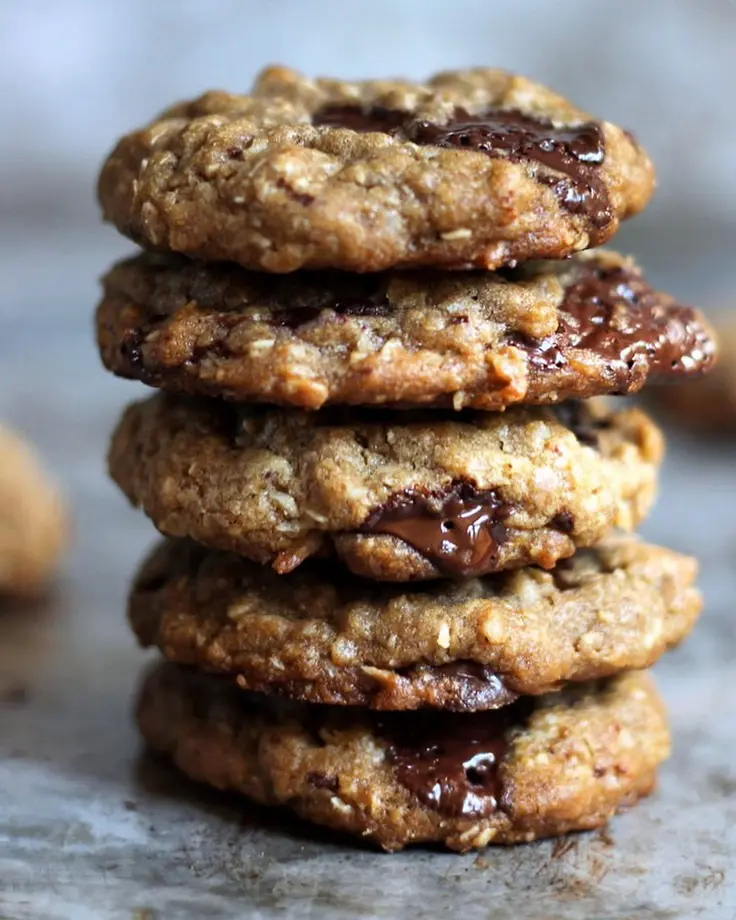
This recipe can cut out unhealthy margarine from your favorite cookie recipes. Also, without using excess fats, which is not good for heart health, you can obtain soft and chewy cookies with a hint of coconut flavor. Excess varieties of cookies can be prepared in this way including oatmeal cookies and chocolate chip cookies. Here is a simple and easy recipe to go with :
- Create a fluffy mixture of coconut oil and sugar.
- To the creamy mix, add vanilla extract and egg and combine them well.
- Get all the dry ingredients together(flour/ oatmeal/ chocolate powder) and add them to the wet mixture prepared above.
- Bake a spoonful of the dough, giving them the shape you desire.
Muffins and Cupcakes
Using coconut oil in muffins will provide a beautifully moist and tender crumb. On the other hand, while preparing cupcakes, coconut oil can wonderfully pair up with chocolate and vanilla flavors. You can also use coconut oil as a base in preparing the frosting. The recipes for both, the ones that will make you want more, are given below:
For Muffins:
-Melted coconut oil, honey (or maple syrup), eggs, and vanilla extract need to be whisked properly at first.
-Gather all the dry ingredients, and mix them with the wet mix prepared earlier.
-After the mix is properly combined, fill the batter into the muffin cups your favorite add-ons must be added to the batter)
-Bake and enjoy the warm muffins.

For Cupcakes:
-Wet ingredients here consist of melted coconut oil, sugar, eggs, and vanilla.
-The whisked wet mix is combined with the dry mix. The batter can be made thin by using hot water or coffee.
-Add the batter evenly into the cupcake liners, and remember not to exceed 2/3rd as the cupcakes will rise while baking.
-Bake and enjoy!
Types Of Coconut Oil
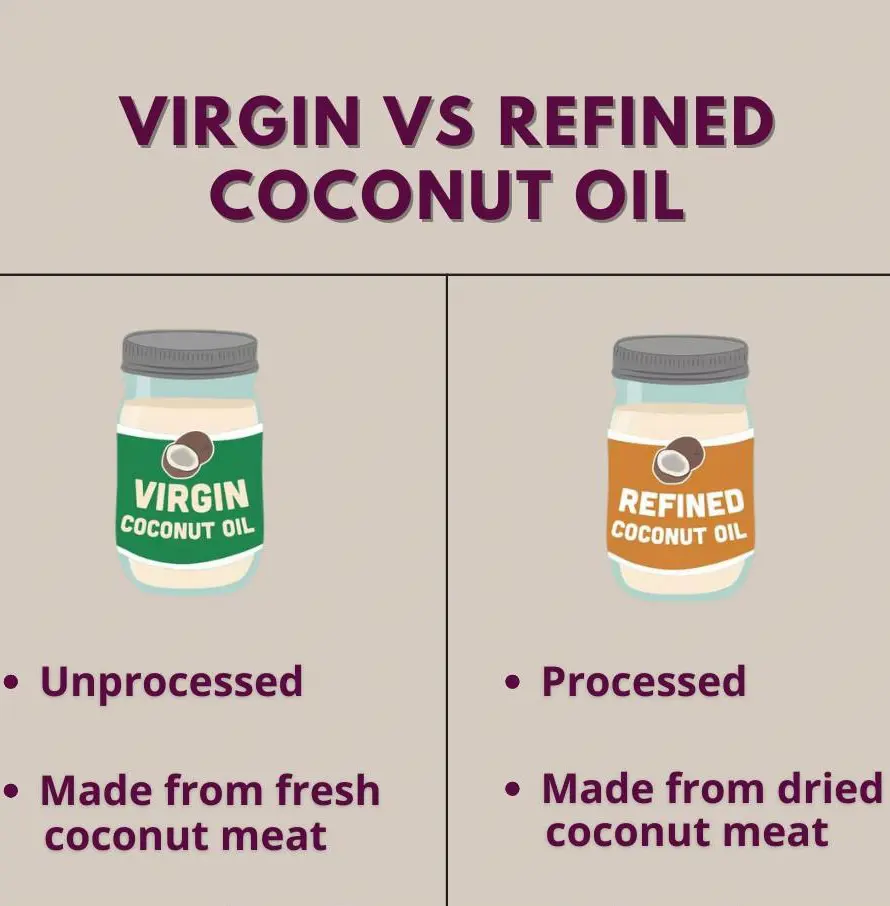
Neither are all coconut oils the same nor their uses. The oils, based on their extraction processes, differ in their quality. The two main types of coconut oil are:
- Unrefined/ Virgin Coconut Oil: This oil is made from coconut meat, only fresh ones. The oil does not go much processing, so, it has exactly the same natural flavor and aroma the coconut has.
- Refined Coconut Oil: It is made from coconut meat as well but at first they are dried. As the coconut oil here goes through extreme processing, you won't get the natural taste as well as the aroma of coconut.
Which One Is Best For Cooking?
There are no restrictions on the use of different coconut oils for cooking, the only thing that needs to be considered is what kind of dishes it is being used for.
Being particular, unrefined ones are not considered suitable for recipes that utilize high-heat cooking. This is because unrefined oil has a low smoking point, so, high heat will break down bonds in the oil and the residues so formed will give food an unpleasant burnt flavor. To bring the best out of this oil, use it in recipes that demand low to medium-heat cooking such as sautéing and stir-frying. It can also be used in raw dishes like smoothies and salads.
Exactly opposite to unrefined, refined coconut oil works well in any recipe where high heat is essential. So, use it wherever the recipe looks for frying or deep-frying. Remember, it's not proper to use refined coconut oil in the dishes where natural flavor and aroma of coconut are essential.
How Much Coconut Oil Is Enough
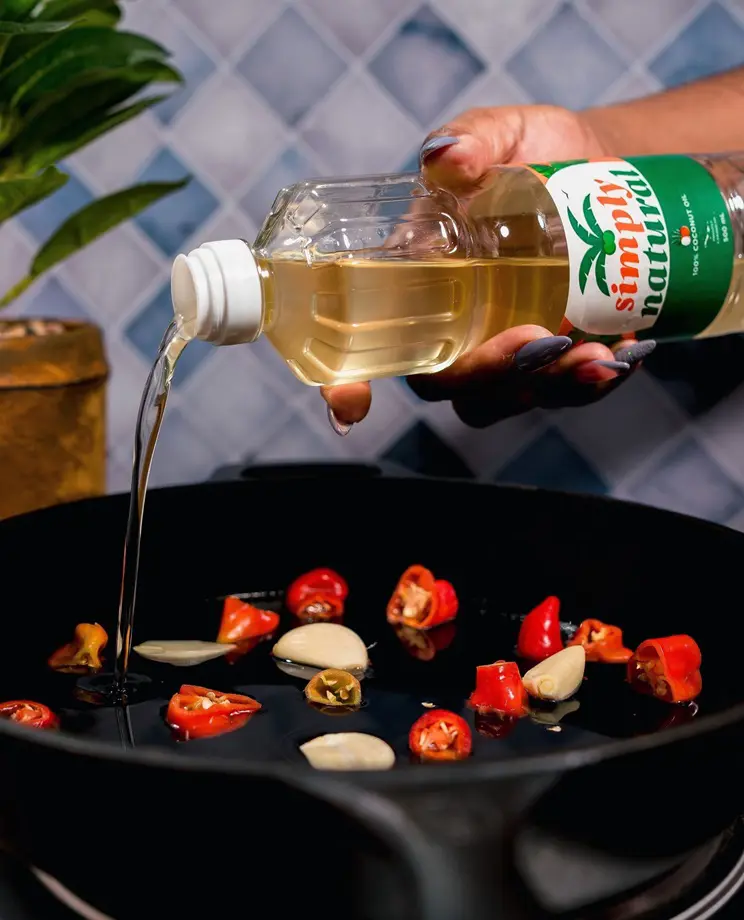
Coconut oil does have benefits but going overboard won't help. A tablespoon of the oil has around 117 calories, and this amount is what makes it a calorie-dense food. Additionally, 90% of coconut oil is composed of saturated fat which is bad for heart health in excess. So, consuming the oil in a large amount only considering the positive side, the benefits, aroma and flavor, may not be a mindful choice.
Although there is no proper guideline on how much to eat, 1 to 2 tablespoons of coconut oil a day is enough to reap all the benefits the oil has to offer. Moreover, what's important is to not rely on a single type of fat, rather other healthy fat sources also need to be added to the daily diet to enjoy its perks without any downsides.
Some Benefits
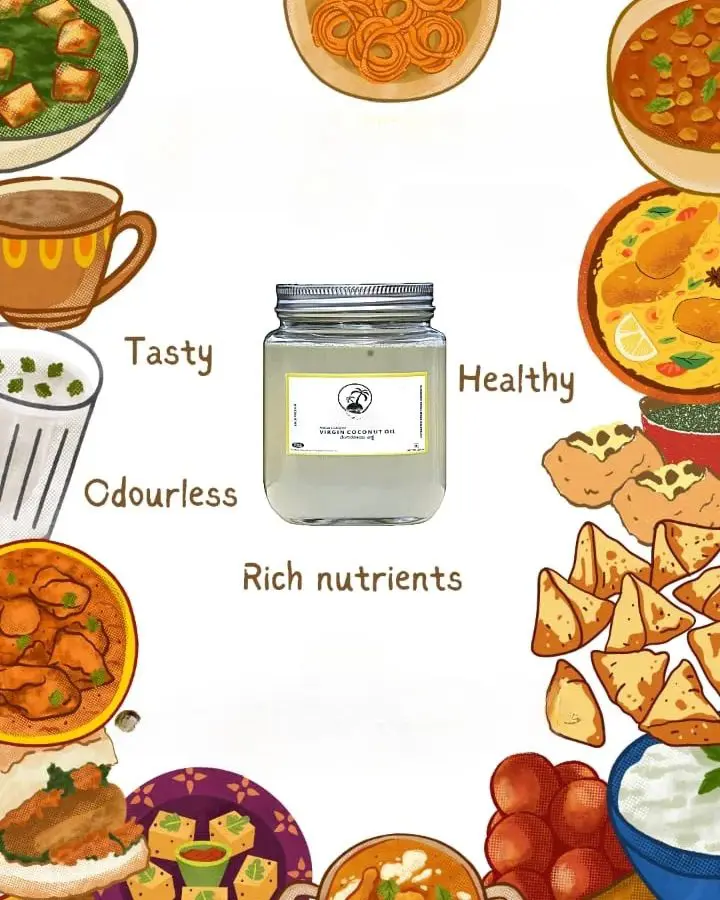
There are a range of health benefits you can obtain by incorporating coconut oil into your diet. Some important ones are:
Good For Quick Energy Boost
As coconut oil contains medium-chain triglycerides (MCTs), a type of fat that can be quickly converted into energy, it makes the best food a quick energy boost. This property can be fully utilized by people who are on a low-carb diet. Moreover, individuals who need an immediate release in the body, such as athletes, can also make the most out of this oil.
Supports Weight Loss
MCTs in coconut oil are said to increase the rate of metabolism in the body. Hence, the consumption of coconut oil can benefit people who have weight loss goals as increased metabolism means a higher chance of fat burning.
Better Than Butter
In terms of saturated fats, butter highly has long-chain fatty acids which have a totally different way of metabolism in the body. The fats in the butter take a longer time to be digested hence are not good if you want instant energy delivery.
Also, as the process of metabolism is slow, there is a high chance that the long-chain fats from the butter get stored as fats in the adipose tissue of the body, especially in cases of excess consumption. Butter in excess also means chances of a rise in the LDL ("bad") cholesterol level.
Things To Consider
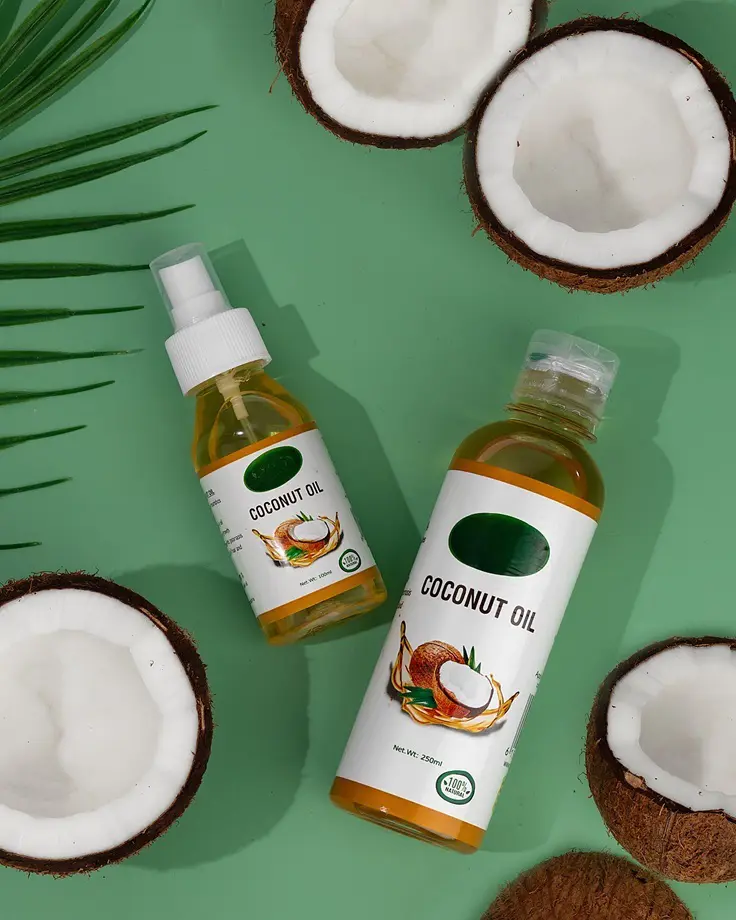
Making coconut oil a part of the diet is suggested but depending solely on it might not be a good idea. A few important things to keep in mind while making this oil a fundamental part of your diet are listed below:
Not As Good As Other Plant Oils
Coconut oil is still a food containing saturated fats in high amounts. Contrastingly, other plant oils contain unsaturated fats that are more on the healthier side than the coconut oil that's getting emphasis here.
So, depending on these plant fats more and maintaining moderation in the case of coconut oil is a proper choice. Some vegetable oils that are free of saturated fats are: olive oil and sunflower oil.
Unrefined/ Virgin Coconut Oil For Maximum Benefits
As already mentioned earlier, refined coconut oil undergoes tons of processing. So, there is a high probability that the refined versions don't contain valuable nutrients. In cases where the oil has been hydrogenated, there is a high chance the high heat can lead to the development of trans fats as well.
Some refined oils might also contain chemical residues minimally, which independent of the amount can be hazardous to our health.
So, for getting the coconut benefits, including antioxidants, and polyphenols, it's better to opt for virgin oil in cooking. Also, it's better to switch to any other oils if the recipe demands oils with high smoke points.
Balance with Other Fats
Diet plans depended only on coconut oil is not recommended. Rather, it’s important to balance it with other sources of healthy fats. Some healthier plant-based oils you can add to your diet to maximize health benefits include olive oil, nuts and fatty fish. They contain other nutrients coconut oil can't provide, some such nutrients being omega-3 fatty acids.
Recent posts
Lifestyle
Lifestyle
How To Eat A Kiwi? Tips on Peeling, Cutting and Recipes
Kiwis, with their green skin and juicy acidic pulp, are not only tasty but also contain many nutrients. However, preparing this fuzzy fruit might raise many questions for individuals concerning the best ways to prepare it. In this guide, we w...
Lifestyle
20 Best Ways To Eat Avocado
Avocados are everywhere these days. Not only fashionable; they are beneficial fruits as well because of their rich nutrient content. Besides that, they hold a creamy texture and elegant taste that you can enjoy in many different ways. Yes, that is co...
Lifestyle
How To Eat Beets In Best Possible Ways
Beets are superfoods but not all people like them. Including beets can make any dish look magnificent but what stops getting them that spotlight is their taste. However, it would be surprising for you to know that there are many cooking methods where...
Lifestyle
What Not To Eat When Pregnant? 18 Foods To Avoid
Pregnancy is a blissful journey, but it also comes with specific dietary restrictions. As your body undergoes significant changes to support the growth of your baby, it's important to make informed choices about what you eat. What not to eat when pre...
Lifestyle
16 Home Remedies To Mosquito Bite Relief
Mosquito bites can turn a pleasant outdoor experience into an itchy nightmare. These pesky insects leave behind red, swollen bumps that can be incredibly irritating. The constant urge to scratch can lead to further inflammation and even infection. An...
Lifestyle
What Are Processed Foods: A List Of Examples To Avoid
If you are unaware of what are processed foods, the answer is easy. Processed foods are typically manufactured foods that have undergone significant processing, often involving additives, preservatives, and artificial ingredients. These quick and tem...
